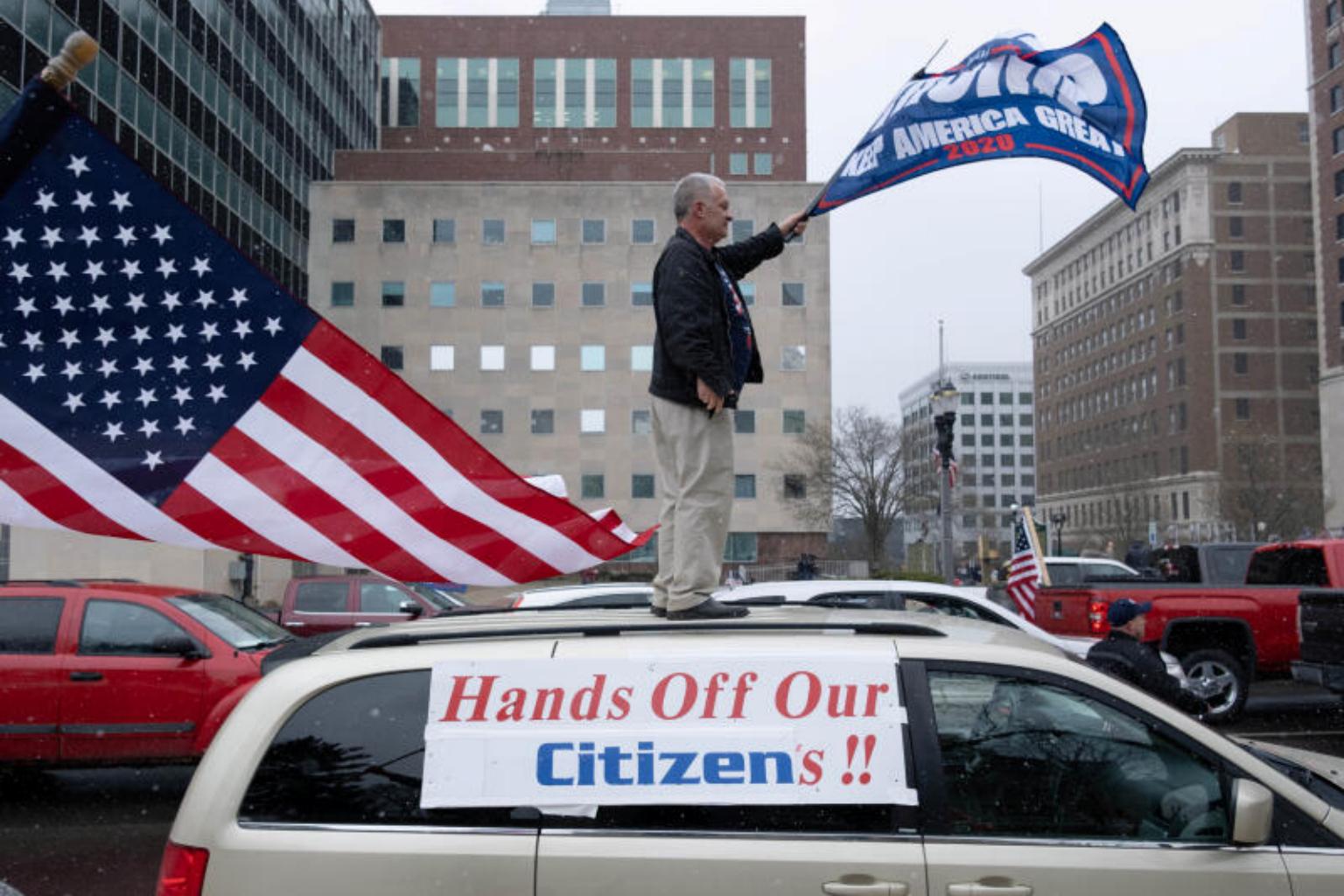What's driving US right-wing protesters fighting the coronavirus quarantine?
Sign up now: Get ST's newsletters delivered to your inbox

Supporters of the Michigan Conservative Coalition protest against the state's extended stay-at-home order at the Capitol building on April 15, 2020.
PHOTO: REUTERS
Follow topic:
WASHINGTON (NYTIMES) - In an era when hardly anything feels nonpartisan, the coronavirus was starting to look like a consensus issue in the United States.
Infection rates and death tolls have risen across the country, and all but a few governors have issued statewide stay-at-home orders. Americans across party lines acknowledge that the virus is a real threat, and most have been drastically changing their behaviours.
Overall, early stirrings of conservative scepticism about the virus' seriousness and its potential effects on the economy seem to have been replaced by a sense of shared concern.
But this week, a rash of well-organised protests against state restrictions broke out - a jolting reminder that not everyone is on board with the new, government-mandated limits on public assembly and economic activity.
From the available polling on these issues and the public statements of many organisers, there is reason to believe that this backlash is more about ideology than about fears of the restrictions' economic impact.
With fast-developing stories like this one, survey data always lags behind the present moment. But polling shows that these right-wing activists probably speak for only a small minority of Americans - or even of all Republicans.
In a Pew Research Centre poll released on Thursday (April 16), two-thirds of Americans expressed more concern that the economy would reopen too quickly and allow the coronavirus to keep spreading, rather than that it would open too slowly, causing undue strain.
Even among most Republicans, bringing things back online too fast was the greater source of concern.
Among very conservative voters, the situation was flipped: 65 per cent said they were more worried about reopening too slowly. But is that because of a concern over the economy, or is it because of a simple frustration with the shutdown itself?
In a Fox News poll released last week, strongly conservative voters were in fact less likely than others to say they worried that the response to the virus could cause a recession. Most did not say they were "very worried" about this, whereas among the rest of the electorate, more than three in five said they were very concerned about the prospect of a recession.
So the backlash may be less about fears that the response will cause economic harm, and more about a sense of outrage at an infringement on liberties.
"If there's a statement that I think I'm hearing the most, it's: 'Tell us what to do and trust us to do it; don't try to make us do it by law,'" Mr Robert Cahaly, a Republican pollster and senior strategist for the Trafalgar Group, said of the protesters.
"It's that whole axiom of, if you would trade liberty for security, you deserve neither."
With President Donald Trump publicly lamenting the need to keep the economy shuttered, the responsibility to lay out restrictions and articulate the justification for them has fallen largely to governors.
Most people express general appreciation: Governors' approval ratings are up virtually across the board. But in states with an already intense partisan divide - like Michigan, Ohio and North Carolina - a small, vociferous protest movement is arising.

On Fox News, Mr Tucker Carlson has called Governor Gretchen Whitmer of Michigan "authoritarian" for placing strict limits on public activity in response to the virus, which has hit the state hard.
When Mr Garrett Soldano, a right-wing activist, spoke recently via livestream to his Facebook group, Michiganders Against Excessive Quarantine, he focused more on principles of liberty than on economics.
"Keeping healthy people at home is tyranny," he said.
On the Facebook page of the conservative group Convention of States, which has close to two million "likes", a statement posted on Thursday read: "Heavy-handed government orders that interfere with our most basic liberties are CERTAIN to do more harm than good."
But so far, concern about the virus remains top of mind. Fully 94 per cent of voters in the Fox poll said they were concerned about the virus' spread, and seven in 10 expressed grave concern. And even most Republicans told Pew that they thought the worst days of this pandemic were still to come.

